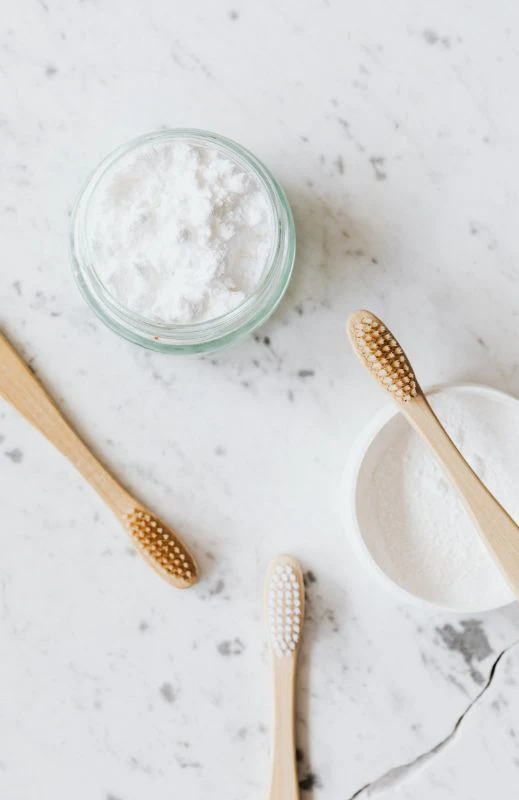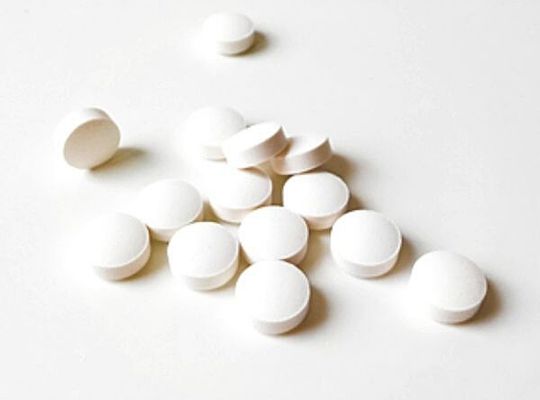Why Natural Toothpaste is Good for You and the Environment

IS NATURAL TOOTHPASTE BETTER FOR YOU AND THE ENVIRONMENT?
Brushing your teeth is a mundane but essential daily task. It is so mundane that you probably don’t give the task much thought beyond choosing a toothbrush and toothpaste that meets your oral health needs.
When you’re running late because your teenager’s hogging the bathroom, there isn’t time for a toothpaste-related existential crisis. You need clean teeth and preferably fresh breath to bad breath.
However, if your health is a priority, you have sensitive teeth, and you want to live more mindfully, you should take a long, hard look at your choice of oral care products. That seemingly innocent tube of minty-fresh gel hides a dirty secret that can negatively impact your health and the planet.
Here’s why ditching commercial toothpaste tubes for eco-conscious all natural toothpaste is bright.

Photo by Karolina Grabowska
THE PROS AND CONS OF Conventional TOOTHPASTE
Regular, commercial toothpaste does have its advantages:
-
It's easy to use.
-
It's a convenient and familiar option.
-
You can pick it up relatively cheaply during your weekly shop.
All sounds harmless enough, right? So what's the issue?
It Contains Chemicals
The problem with traditional toothpaste is that most formulas contain toxic chemicals and even plastic! Many of these products also include artificial flavours, which raise concerns about ingredient safety and potential health risks. Each time you brush, the chemicals and plastic get washed down the drain into lakes and oceans, where they poison wildlife. Take a look at this horror show of ingredients:
-
Triclosan: a chemical antibacterial agent widely used in toothpaste and other personal care products. Known to inhibit marine animals’ growth and hormones
-
SLS (sodium lauryl sulfate) is the #1 bad guy in human health when used in more than trace amounts. This foaming agent has been linked to many problems, including skin irritation.
-
Microbeads (microplastics): These are included in many toothpaste formulas to remove stains and polish teeth. When marine animals ingest microbeads, they kill wildlife and can end up on our plates via seafood!
Often Tested on Animals
Regular tubes of toothpaste sometimes contain unsustainable palm oil or animal products, which is not ideal for an eco-conscious vegan natural product, is it? This is regardless of whether it's fluoride toothpaste or fluoride-free options.
The formula may have been through animal testing, something that large, international corporations still do, although it is a banned practice in the UK and Europe.
Not Plastic-free Toothpaste
Finally, commercial toothpaste comes in a plastic tube with a plastic lid. Neither is reusable, and the different types of plastic often can't be recycled. Ugh.

THE PROS OF NATURAL TOOTHPASTES
The main advantage of natural toothpaste is twofold: it's far better for your health and the environment. The ingredients list is often shorter and more convenient to understand, and there are no chemicals in natural, eco-friendly formulas. Your sensitive gums will thank you.
Natural Ingredients Taste Better
Natural toothpaste often tastes nicer, as it contains only natural ingredients; it doesn't have the synthetic flavours, including artificial sweeteners or artificial colours, of commercial toothpastes. Whitening toothpaste, which often includes natural whitening agents like baking soda, can help maintain white teeth and prevent new stains without the abrasiveness found in some charcoal toothpastes.
Some natural toothpastes, like Denttabs, come in tablets that you chew to create a paste for brushing. They also have whitening power as they contain baking soda.

Eco-Friendly Packaging
Some are powders you mix with water, and some are similar to regular toothpaste but without chemical nasties. These products often come in biodegradable packaging, glass jars or recyclable containers like cardboard boxes.
It's even possible to make your own natural toothpaste or to use a product already on your shelf. For instance, some of The Natural French Soap Company's shampoo bars can double as toothpaste in a pinch or when you're travelling! They are made from organic ingredients and enriched with natural essential oils.
That means you can nail your buy-less-waste-nothing goals and save yourself some cash. And if you're striving for a 100%-eco oral care routine, choose a natural bamboo toothbrush; we have sizes for adults and children at The Natural French Soap Company.
Natural Alternatives
It's even possible to make your own natural toothpaste using coconut or tea tree oil or a product already on your shelf.
For instance, some of The Natural French Soap Company's shampoo bars can be used to brush your teeth in a pinch or when travelling! They are made from organic ingredients and enriched with natural essential oils.
That means you can nail your buy-less-waste-nothing goals and save yourself some cash. And if you're striving for a 100%-eco oral care routine, choose a natural bamboo toothbrush; at The Natural French Soap Company, we have sizes for adults and children.
THE CONS OF NATURAL TOOTHPASTES
With all those benefits, you may be wondering if there are any downsides to using natural toothpaste. Admittedly, eco-natural products can sometimes be more expensive, and they are harder to find in regular shops.
Also, depending on which type you choose (powder, tablets, or other), you may find it fiddly to use or dislike the texture until you get used to it.
“That transparency is important. Look at what's inside products and seek out those that contain natural, plant-based ingredients - from toothpaste to cosmetics.”
SOPHIE HEYMAN ULIANO - ACTRESS
NATURAL vs Conventional TOOTHPASTE
Using traditional toothpaste is one of those mindless habits we can't help but perpetuate. But switching to one of many natural toothpastes will make you feel so much better, health-wise and morals-wise!
You'll at least know that your oral hygiene isn't harming the planet but can still freshen your breath and leave your mouth feeling fresh.
Like every aspect of your eco-lifestyle, changing your toothpaste is about finding the perfect balance. If you're willing to invest a little time and money into trying natural, zero-waste, organic toothpastes, the pros will outweigh the cons.
You can whiten teeth while preventing damage to your tooth enamel and the environment! Plus, your new pearly whites will give you a healthy smile!
A Brief Word On Fluoride Toothpaste
What Is Fluoride?
Fluoride is a naturally occurring mineral discharged from rocks into soil, water, plants, and air. Nearly all water contains some amount of fluoride, but usually in insufficient quantities to prevent tooth decay.
Sometimes, Fluoride is added to the drinking water supply to help reduce plaque and prevent cavities.
 What Are The Benefits Of Fluoride?
What Are The Benefits Of Fluoride?
When Fluoride is present in the mouth of both adults and children, it offers many benefits. It can:
-
Prevent decay of the tooth enamel.
-
Prevent cavities or lessen the occurrence of severe cavities.
-
Lessen dentist visits for fillings and tooth extractions.
-
Help prevent Gingivitis
-
Lessen the discomfort and suffering associated with tooth decay.
Fluoride Worries
Even though Fluoride is natural, it has a couple of side effects, but only when consumed in very large doses. One of which is Dental Fluorosis, which can cause white spots on the teeth. This is more likely in children under 8, so try to stop them from swallowing when brushing their teeth.
Some would say avoid fluoride; however, there seems to be no convincing evidence to support that argument at the moment.
If you have concerns about fluoride, many natural toothpaste companies offer fluoride-free toothpaste. Also, avoid swallowing it - and remember to tell the kids.
ET VOUS?
Tell us in the comments below what you use as toothpaste. Have you considered switching to a zero-waste, more eco-friendly option? Do you have some oral health secrets you'd like to share?
Please recycle this article by sharing it with your friends using the highly polished social media buttons below. We truly appreciate it :)
Try Dentabs Organic Toothpaste Tablets with Baking Soda Here
Pack of 62 Tablets (one month supply)
That unrecyclable tube of microbead-riddled toothpaste: It's sabotaging your efforts to live the eco life, isn't it? Well, here's your ethical solution!
These tablets are kind to Mother Earth and your mouth. They contain organic ingredients and come in sustainable, plastic-free, compostable packaging.
They're 100% natural and vegan, with a minty-fresh taste that leaves your mouth feeling fresh.
Denttabs contain the finest micro-cellulose that makes your teeth shiny while protecting your sensitive gums. When your teeth are polished, they're more resistant to plaque formation, so you'll have the healthiest gnashers. Chew, brush, rinse and grin!
